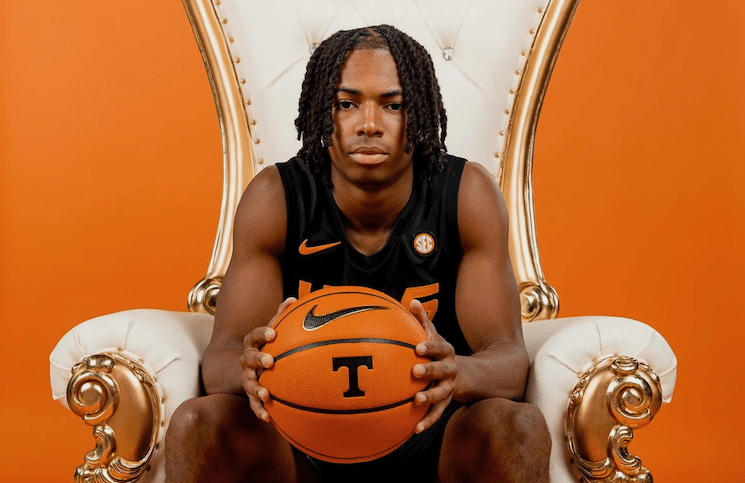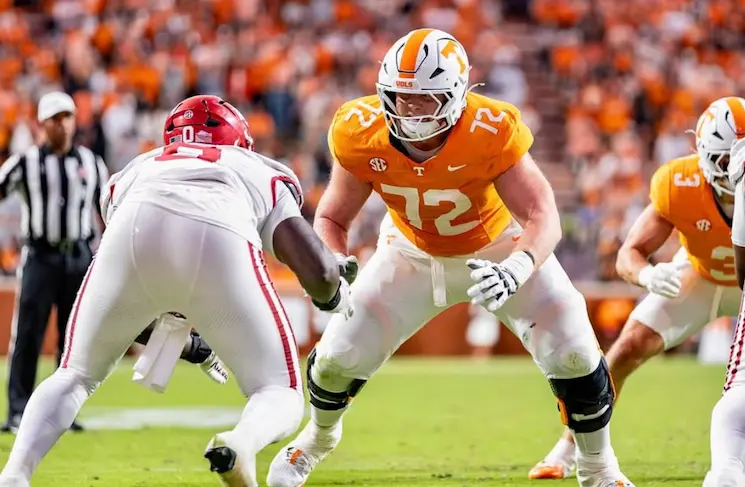
This Week in UT Sports History is a weekly column written by RTI columnist Lexie Little
It’s official: the 2019 Tennessee Volunteers (7-5) earned a bid to the TaxSlayer Gator Bowl on Jan. 2, 2020. Tennessee holds a strong tradition of bowl appearances with 52 (soon to be 53), making the Vols’ program one of the most successful in the nation in terms of earning a trip to the postseason. However, this year marks the first time Tennessee has earned a bid since 2016.
While the Southeastern Conference champion LSU Tigers (12-0) head to the Peach Bowl for the semifinals of the College Football Playoff, take a look back at Tennessee’s own Peach Bowl bid and more in “This Week in UT Sports History.”
Dec. 13, 2002
During the 2002 season, Neyland Stadium attendance numbered more than 103,000 on seven different occasions. Back then, the house the General built could seat 104,079, but as many as 108,745 fans squeezed into the stadium for the Miami game in Week 9. That year brought a six-overtime victory against Arkansas in a game for the ages, big losses to Florida and Alabama at home, a 4-point loss to Georgia between the hedges, and a regular season record of 8-4.
Several days prior, Peach Bowl representatives invited Tennessee and No. 20 Maryland to face off at the Georgia Dome in Atlanta. With crowds filling Neyland all season, the University of Tennessee seemed poised to turn the dome orange and white. By close of business Tuesday, Dec. 10, 2002, Tennessee fans had purchased 11,335 tickets after just two days of sale.
“The atmosphere of college football in the Georgia Dome is great,” Dara Worrell, UT assistant athletics director and ticket manager, told utsports.com. “We think Volunteer students, fans and alumni will paint Atlanta orange in support of Tennessee football.”
Fans clamored to spend New Year’s Eve in Atlanta watching the Vols in the 35th edition of the Peach Bowl. Fans looked forward to the occasion, as did head coach (now athletic director) Phillip Fulmer during his press conference on Dec. 13, 2002.
As players finished final exams, Fulmer and his staff looked forward to resuming practice. Coaches had been recruiting during the break between the final game of the regular season against Kentucky and the first practice post-finals. But Fulmer’s mind remained geared toward the game.
“Right now, I’m just glad to be off the road. I know the coaches will feel the same way when they all get back in here. We’re glad to get started back into football,” Fulmer said. “And I think it’s particularly exciting to be able to go into the Dome and play. LSU, a couple of years ago, used the Peach Bowl and the setting there in the Dome as an experience that they were able to use for next year. So, I’m anxious for our kids to see it and play in it. A lot of the guys on our team haven’t. And we’ll have a chance to play against a really, really fine Maryland football team.”
Fulmer said his team would face a real challenge on offense against Maryland’s “very aggressive style of defense,” also noting a need for good run defense on the opposite side of the ball to stunt Maryland’s option team.
He was right.
Maryland’s aggressive defense prevailed, holding the Vols to only three points in a 30-3 victory to ring in 2003. Tennessee went on to repeat in the Peach Bowl the very next season, losing 27-14 against Clemson after a 10-2 regular season.
Tennessee faces Indiana in the TaxSlayer Gator Bowl this season at 7 p.m. on Jan. 2, 2020 in Jacksonville, Florida.
Dec. 10, 2009
Seven years later, the Vols prepared to again travel to Atlanta for the bowl season. Tennessee headed to defensive back Eric Berry’s home state for the Chick-fil-a Bowl, but not until after he picked up his Jim Thorpe Award trophy at the ESPNU Home Depot Awards Show at Disney World in Lake Buena Vista, Florida.
Berry, a Fairburn, Georgia, native, had been named a finalist the year prior. But 10 years ago this week, Berry took home the award for the top defensive back in college football named for Olympic gold medalist and professional football and baseball player Jim Thorpe.
“I’m very pleased and very excited, Berry said. “I was kind of shocked, but I try not to get too worked up about how things turn out. This was a fun night.”
Berry also learned the Walter Camp Football Foundation named him an All-American for the second consecutive year during the show. (He would be a consensus and unanimous All-American by season’s end). His recognitions came after his 494 interception return yards placed him first all-time among NCAA leaders. He had picked off 14 passes at that point in his Tennessee career.
Berry led all SEC defensive backs in tackles with 87. His impressive play earned him a spot on the Kansas City Chiefs in the NFL, who selected Berry 5th overall in the first round of the 2010 NFL Draft. The pro, who has made five Pro Bowls and three All-Pro teams, battled Hodgkin’s lymphoma after diagnosis in December 2014 only to return for a Pro Bowl season in 2015.
“I was truly awed by the incredible achievement,” Dr. Christopher Flowers, Berry’s physician, said to FOX Sports in 2015. “I reached out to him today to congratulate him, and Eric is really, truly a testament to the great will and spirit of an individual in overcoming this cancer. He’s been a fighter through all of his therapy so far and has really had the best outcome that we could have possibly hoped for him at this point.”
Berry remains a fan favorite among Tennesseans who often don his No. 14 UT jersey to home football games. His number will likely appear in Jacksonville at the Gator Bowl as well.



